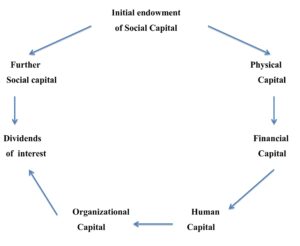The Importance of Social Entrepreneurship for Development
Especially since Muhammad Yunus, founder of the Grameen Bank and a renowned example of a social enterprise, won the Nobel Peace Price in 2006 there is increasing interest in social entrepreneurship for development yet the current academic literature does not provide is a sufficient link between social entrepreneurship and economic development policies. How important are social entrepreneurs for economic development? What value is created by social entrepreneurship?
The social entrepreneur sector is increasingly important for economic (and social) development because it creates social and economic values:
1. Employment Development
The first major economic value that social entrepreneurship creates is the most obvious one because it is shared with entrepreneurs and businesses alike: job and employment creation. Estimates ranges from one to seven percent of people employed in the social entrepreneurship sector. Secondly, social enterprises provide employment opportunities and job training to segments of society at an employment disadvantage (long-term unemployed, disabled, homeless, at-risk youth and gender-discriminated women). In the case of Grameen the economic situation of six million disadvantaged women micro-entrepreneurs were improved.
2. Innovation/ New Goods and Services
Social enterprises develop and apply innovation important to social and economic development and develop new goods and services. Issues addressed include some of the biggest societal problems such as HIV, mental ill-health, illiteracy, crime and drug abuse which, importantly, are confronted in innovative ways. An example showing that these new approaches in some cases are transferable to the public sector is the Brazilian social entrepreneur Veronica Khosa, who developed a home-based care model for AIDS patients which later changed government health policy.
Next to economic capital one of the most important values created by social entrepreneurship is social capital (usually understood as “the resources which are linked to possession of a durable network of … relationships of mutual acquaintance and recognition”). Examples are the success of the German and Japanese economies, which have their roots in long-term relationships and the ethics of cooperation, in both essential innovation and industrial development. The World Bank also sees social capital as critical for poverty alleviation and sustainable human and economic development. Investments in social capital can start a virtuous cycle.
i. Endowment
The first job of social entrepreneur is to take whatever endowment of social capital he is given and to use these relationships to create more social capital,by getting more people and organizations involved with the project,by building a wider web of trust and cooperation around the project.
ii. Physical capital
The initial endowment of social capital often brings access to physical capital,usually in the form of rather run-down buildings.Getting access to a physical base is vital.It provides a focus,a base for new services and a tangible sign that the project is achieving something.
iii. Financial Capital
The initial network of supporters and helpers is vital to bring access to funds,through fundraising,donations and corporate giving.The more diverse and richer the network,the easier it will be to raise the funds.
iv. Human Capital
The project has to recruit and pull in more key people to help it move from start-up into growth,creating products and services.
v. Organisational capital
As the project grows,becomes larger and more complex,its management will need to become more organized.It will need stronger financial systems and legal help.With more staff involved,people management may become more complicated.So the project needs to develop organizational capital,a more formalized management structure,financial systems and a stronger set of relationships with partners.
vi. Paying dividends
In the first phase of project,the social entrepreneur inherits and creates social capital.Then he starts to accumulate more capital in the form of buildings and finance.Then the capital is invested in creating new services and products.In the final phase,if the investment has been successful the project starts to pay dividends in several different forms.Perhaps the most valuable dividend is yet more social capital,in the form of stronger bonds of trust and cooperation,within the community and outside partners and funders.
4. Equity Promotion
Social entrepreneurship fosters a more equitable society by addressing social issues and trying to achieve ongoing sustainable impact through their social mission rather than purely profit-maximization. In Yunus’s example, the Grameen Bank supports disadvantaged women. Another case is the American social entrepreneur J.B. Schramm who has helped thousands of low-income high-school students to get into tertiary education.
To sum up, social enterprises should be seen as a positive force, as change agents providing leading-edge innovation to unmet social needs. Social entrepreneurship is not a panacea because it works within the overall social and economic framework, but as it starts at the grassroot level it is often overlooked and deserves much more attention from academic theorists as well as policy makers. This is especially important in developing countries and welfare states facing increasing financial stress.


